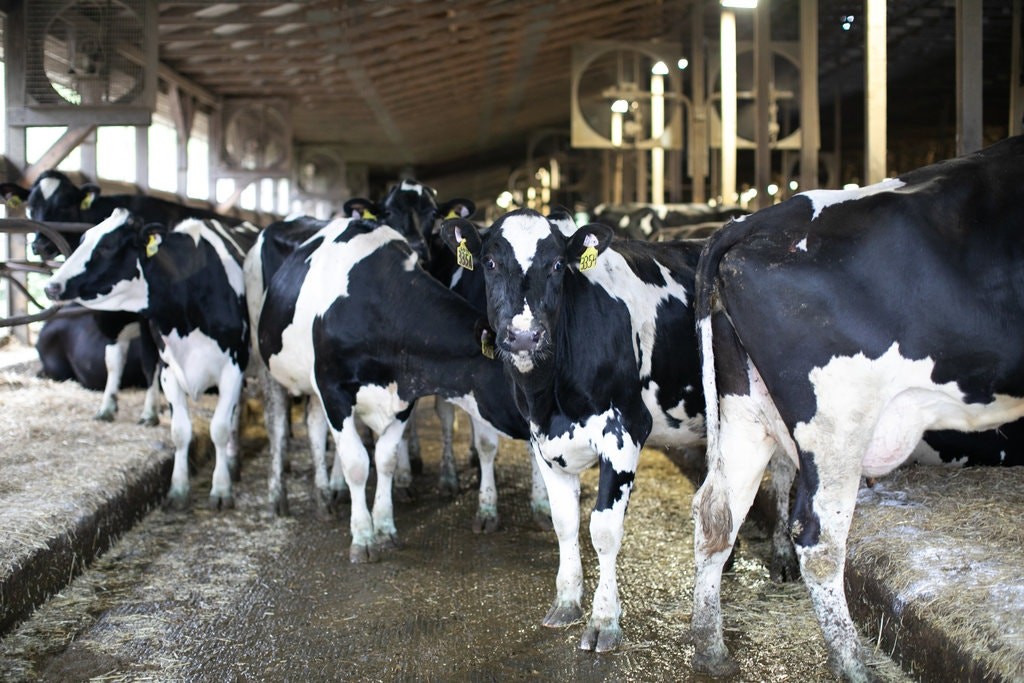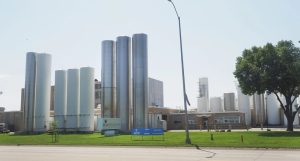
It’s a hard time to be a dairy farmer in America: The nationwide decline in milk consumption and the rippling effects of the trade war with China have pushed thousands of farms out of business.
Now the industry is a step closer to a major consolidation that some struggling farmers fear could cripple them even further.
In a deal that is likely to draw scrutiny from government antitrust regulators, Dairy Farmers of America, the country’s largest milk cooperative, announced on Monday that it had reached an agreement to purchase a “substantial portion” of the bankrupt milk company Dean Foods.
Dairy farmers have argued that a merger would reduce competition and suppress the price of raw milk. But the co-op says its deal will help farmers by guaranteeing that there will be buyers for their milk at a time when milk consumption is declining nationwide.
Under the agreement, Dairy Farmers of America, a farmer-owned co-op, would pay $425 million to acquire 44 of Dean Food’s facilities, as well as the real estate, inventory and equipment necessary to operate them. To move forward, the deal must be approved by the bankruptcy court overseeing Dean Foods as well as by regulators, who have been investigating the potential merger for months.
So far, much of the antitrust scrutiny has focused on the co-op’s evolving role in the American milk business. Two decades ago, Dairy Farmers of America was founded to help small farmers market their raw milk to dairy processing companies like Dean Foods, which prepare milk for distribution to retailers.
But over the years, the co-op, which now has more than 14,000 members, has also invested heavily in processing, meaning it buys some of the raw milk that its own marketing branch sells. Those investments have created a conflict of interest, some dairy farmers argue, because processors benefit from lower milk prices, while farmers benefit from higher ones.
Dean Foods, the largest milk processor in the United States with a little under 60 manufacturing facilities and a portfolio of well-known brands like TruMoo and Lehigh Valley, filed for bankruptcy protection in November, hurt by changing consumer habits and a growing market of milk alternatives.
Dairy Farmers of America’s plan to acquire a large portion of Dean Foods’ assets would significantly expand its processing operations, heightening the conflict of interest, critics of the merger say.
But not all dairy farmers are opposed. And executives who negotiated the deal argue that bringing together the two milk giants will keep the market stable.
“It is important to ensure continued secure markets for our members’ milk and minimal disruption to the U.S. dairy industry,” Rick Smith, the chief executive of Dairy Farmers of America, said in a statement on Monday.
The chief executive of Dean Foods, Eric Beringause, said in a statement that Dairy Farmers of America would “serve our customers with the same commitment to quality and service they have come to expect.”
The co-op has been discussing a possible acquisition of Dean Foods since shortly before the bankruptcy filing. At the same time, antitrust officials at the Justice Department have been investigating the potential merger, speaking with farmers and the lawyers who represent them about how a deal would affect milk pricing and competition.
In January, a department lawyer sent an email to farmers who sell raw milk to Dean Foods, asking to discuss the merger over the phone.
“We are investigating Dairy Farmers of America’s potential acquisition of Dean Foods and the potential loss of competition for selling raw milk,” the email said, according to a copy reviewed by The New York Times.
The bankruptcy court in Texas that has overseen the Dean Foods case is scheduled to hold a hearing on March 12 to review the possible acquisition.
The possible Dean Foods deal is not the only source of the antitrust scrutiny facing Dairy Farmers of America. Justice Department officials have also been speaking with the lawyers behind a lawsuit in Vermont that accuses Dairy Farmers of America of engaging in a wide range of anticompetitive practices, including striking deals with other co-ops to not poach one another’s members.
The co-op has denied those allegations. But in September, a judge allowed the case to move to trial, writing in her decision that the plaintiffs had presented evidence from which a “rational jury could conclude that the D.F.A. management favored growth of its commercial operations and empire building over the interests of its farmer-members.”























